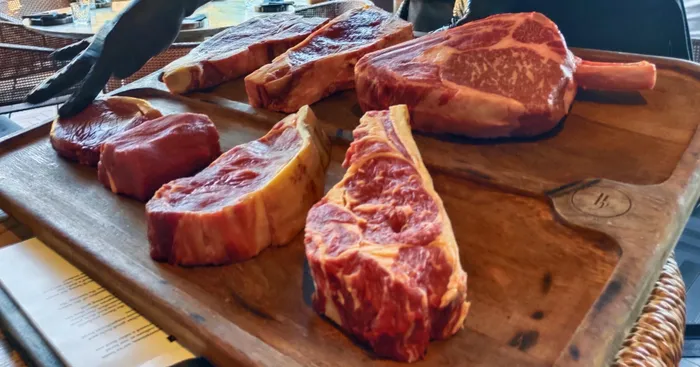
The rise in cost of meat has slowed.
Image: Ingrid Shevlin
South Africans are likely to only get the benefit of one more interest rate cut this year on Thursday as inflation is set to rise in the coming months.
Investec chief economist Annabel Bishop said that this was despite the South African Reserve Bank having the space to cut interest rates by as much as 1.5 percentage points this year and in 2026. The Bank’s Monetary Policy Committee (MPC) will make the interest rate announcement tomorrow afternoon.
“With CPI inflation expected to average just above 4.0% year-on-year in the MPC’s forecast period, the current 7.25% repo rate could afford to drop,” said Bishop. However, she said additional cuts of up to 1.5 percentage points are not expected this year.
This would bring the prime lending rate down to 10.5%.
Bishop’s view aligns with that of other economists, with Old Mutual chief economist Johann Els having said that there will likely be a 0.25 percentage point cut this week, while Standard Bank’s group head of South Africa macroeconomic research, Dr Elna Moolman has also argued that there should be a cut.
Full-year inflation is likely to come in at 3.3% year-on-year. Els has previously said that inflation is expected to rise moderately through the rest of the year, approaching 4% by December.
The cost of living rose to 3% in June from a year earlier, pushed higher by food, housing, electricity, and other state-driven costs.
Although inflation had eased since the beginning of the year, Bishop warned that prices for essentials such as electricity and water continue to keep overall inflation elevated. Rental price inflation was at 3% year-on-year, she added.
State-administered prices, including electricity and fuel, remained the biggest drivers of services inflation. Meat prices were expected to ease, and petrol could become cheaper in August, although this was dependent on geopolitical aspects that could influence the global oil price.
Brent crude was down 0.61% as of 11.30am on Wednesday morning and is down 7.88% this year. However, much of this price hinges on pending tariffs from the US, which will kick in across the globe on Friday, while the rand weakness will also play an important factor.
The local currency has recently weakened and is trading at R17.90, although this figure has remained flat over the past few days
Although inflation started to come down in 2023, interest rate cuts were “delayed and then have proved to be insufficient, holding back growth,” Bishop said.
South Africa’s economy only gained 0.1% year-on-year as of the first quarter, which exceeded economists’ expectations thanks to a strong showing from agriculture.
FAST COMPANY
